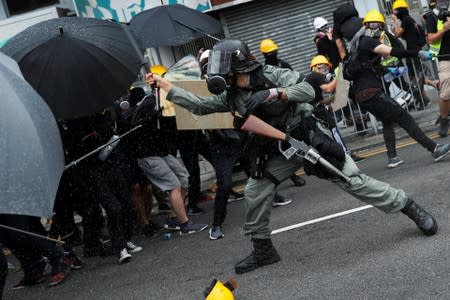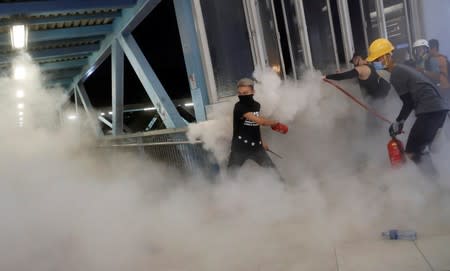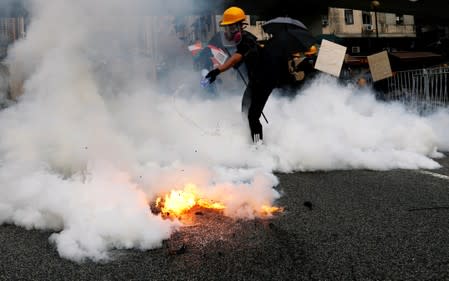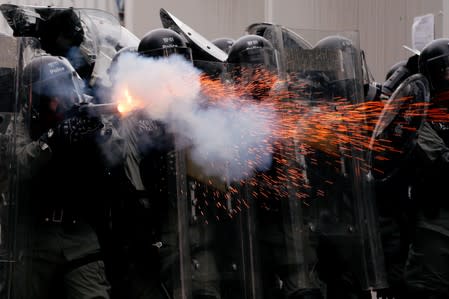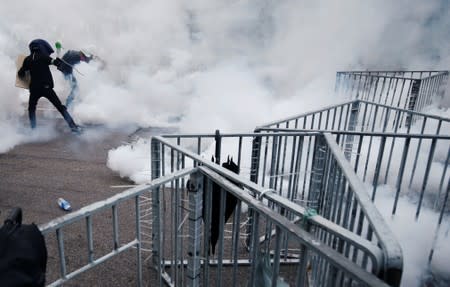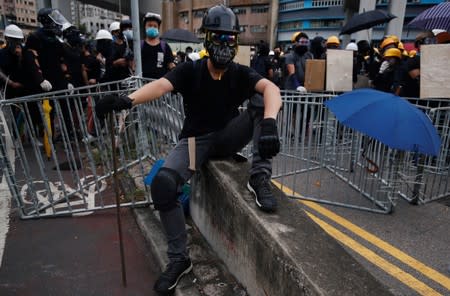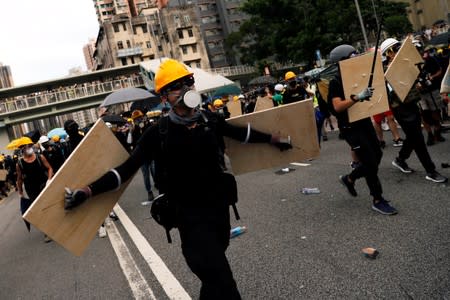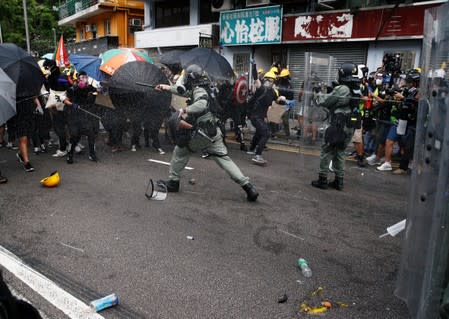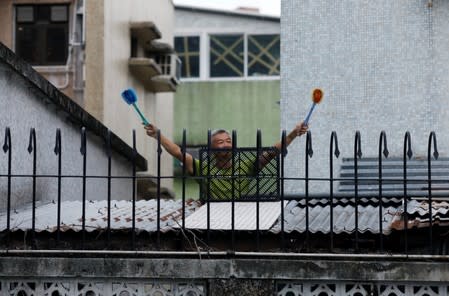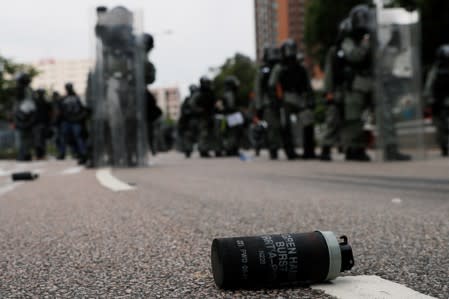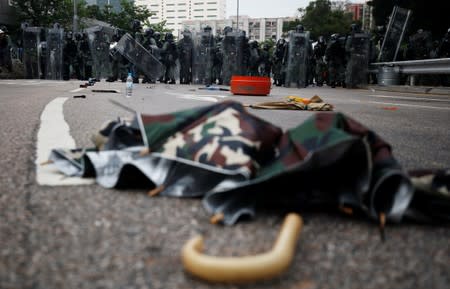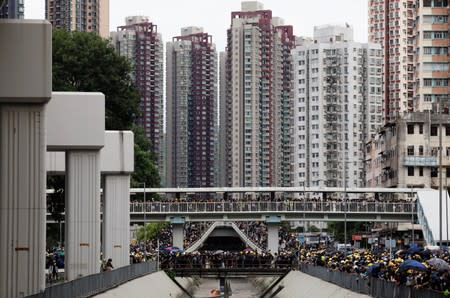Police fire tear gas, rubber bullets in Hong Kong clash over banned march
By James Pomfret and Marius Zaharia
HONG KONG (Reuters) - Police fired tear gas and rubber bullets while protesters hurled rocks during clashes in a rural Hong Kong town on Saturday as several thousand activists gathered to protest an attack by suspected triad gang members at a train station last weekend.
Activists pushed ahead with the march in Yuen Long, scene of the attack by club-wielding men, in spite of a refusal by police to allow the protest on safety grounds.
Rocks and bottles were thrown by protesters, who built barricades out of street furniture and umbrellas, creating multiple stand-offs.
Police, widely criticised for failing to better protect the public from last weekend's attack, responded on Sunday with tear gas, rubber bullets and sponge grenades, a crowd control weapon.
While hundreds of protesters left the area as it grew dark. several hundred more remained. Many were armed with sticks and improvised shields made from wood, surf boards, cardboard and other materials.
Earlier, Reuters witnesses saw a hard core group of activists with small metal bats, metal and wooden poles and slingshots moving against the tide.
Last Sunday, about 100 white-shirted men stormed the Yuen Long mass-transit station hours after protesters marched through central Hong Kong and defaced China's Liaison Office - the main symbol of Beijing's authority over the former British colony.
The men attacked black-clad protesters returning from Hong Kong island, passers-by, journalists and lawmakers with pipes and clubs, leaving 45 people injured. Some of the men later fled to Nam Pin Wai, a traditional walled village.
"We are all waiting for the white shirts to come out. If they want to fight us we are ready," said Harlem Lo, a protester wearing a black T-shirt, who stood his ground despite riot police attempts to clear the area.
"We’ll get revenge for the beatings if they come out," he said.
On Sunday, a car was dented and its windows smashed near the village.
Police, considered slow by protesters to respond last Sunday, became a focus for Saturday's march.
"They failed the public," Kevin, a protester in a red T-shirt, said of the police earlier in the afternoon, as he stood outside the police station, gripping its gates.
"They deliberately let the triads beat up protesters to get revenge on us ... We're here to teach them a lesson," he said, as he shouted an obscenity at the police.
Police said on Sunday protesters used roadside fencing and other street furniture to create roadblocks.
"Some hurled bricks and hard objects at police officers and charged police cordon lines," police added in a statement.
PROTESTS INTENSIFY
The Yuen Long attack and the vandalism at the Liaison Office marked new fronts in a protest movement that has intensified over the last two months.
The protests, considered the most direct challenge to the authority of China's President Xi Jinping, mushroomed on Friday as thousands of activists thronged the arrivals halls of Hong Kong international airport.
The protesters, initially demanding the scrapping of a bill that would have allowed people to be sent to mainland courts for trial, are now also seeking independent inquiries into police use of force, the resignation of Hong Kong leader Carrie Lam and full democratic reform - anathema to Beijing's Communist Party leadership.
The crisis is exposing fissures in Lam's administration, with police chiefs and rank-and-file officers enraged at an apology over last weekend's attacks by her chief secretary on Friday, apparently made without consultation.
The official, Matthew Cheung, said the government would not shirk its responsibility "and the police's handling fell short of residents' expectations".
Britain handed Hong Kong to China in 1997 amid guarantees that its core freedoms and autonomy, including the right to protest and an independent judiciary, would be protected under a "one country, two systems" formula.
Many fear those rights are under threat as Beijing's reach extends into the city.
Activists told Reuters they feared Saturday's protest would turn violent, given anger among the protesters over last Sunday's violence and a determination among some to challenge villagers they believe are close to triad groups in the area.
"We are hoping for a peaceful night," said Neil, masked, in his mid-20s, standing next to a friend who was strapping on a hard hat. "We want Yuen Long to be safe and peaceful. But there still might be trouble so we have to be prepared."
Several banks in the area did not open on Saturday and many businesses were shuttered.
(Reporting By Donny Kwok, James Pomfret, Greg Torode and Marius Zaharia; Writing by Jennifer Hughes and Greg Torode; Editing by Mark Potter and Janet Lawrence)

